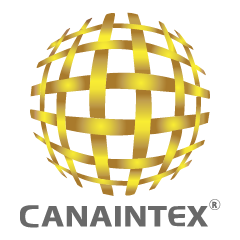El 18 de abril, los Miembros de la OMC se reunieron con representantes del sector público y el sector privado para examinar los retos a que se enfrentan los exportadores para cumplir las prescripciones relativas a la certificación del origen. La sesión informativa celebrada en la sede de la OMC forma parte de un esfuerzo de divulgación en colaboración con la comunidad empresarial, el mundo académico y otros organismos internacionales para entender mejor los problemas o dificultades que se plantean e identificar soluciones concretas.
(de momento sólo en inglés)
Certificates of origin are required from exporters to obtain benefits under preferential trade arrangements. In addition, some WTO members require such certificates even in the absence of any trade preference for reasons such as enforcing anti-dumping measures or ensuring application of most favoured nation tariff treatment to imports from WTO members. Sometimes, non-preferential rules of origin are also linked to labelling obligations (i.e. country-of-origin marking) and the application of quotas.
According to WTO Agreements, WTO members should only require a certificate when they are "strictly indispensable". While such certificates may be necessary, several speakers noted they also generate cost and delays for businesses and may be a source of risk and uncertainty. The cost of securing such certificates can go up to several hundred dollars per certificate, speakers explained to WTO members.
The WTO's Trade Facilitation Agreement addresses some of these concerns through provisions related to transparency, prior processing and customs cooperation, but some participants acknowledged that there are several gaps and that there would be scope for further positive outcomes through the WTO's Committee on Rules of Origin.
Participants at the information session heard presentations from representatives of the WTO Secretariat, the Brussels-based World Customs Organization (WCO), the International Chambers of Commerce, the UN Conference on Trade and Development (UNCTAD), the International Trade Centre (ITC), and the professional services company KPMG, among others. The discussion focused on international legal instruments related to the certification of origin, private sector perspectives on certification requirements and some national practices in this area.
Michel Anliker, Director and Head of Trade and Customs with KPMG Switzerland, said non-preferential rules of origin in particular created "significant barriers" to trade, are difficult for businesses to understand, and are often misused both by traders and customs authorities. Greater alignment between preferential and non-preferential rules and a mutual recognition framework among customs authorities are two ways to overcome some of these difficulties.
Mette Azzam, Senior Technical Officer with the WCO, said a WCO survey showed that the vast majority of governments do not systematically require a non-preferential certificate of origin, although some members do. She questioned the need for such practices, arguing that in most cases customs authorities actually do not require a certificate to perform their duties.
Ursula Hermelink, Manager of the ITC's Non-Tariff Measures Programme, said that rules of origin are perceived by traders as among the most burdensome barriers they face, with the lack of clarity, consistency and predictability being the main issues. The problem is not only cost but extensive delays in securing certification. She invited WTO members to think about possible measures to make certification of origin requirements more transparent, cheaper and simpler.
The agenda for the session and presentations are available below:
Information session on proofs of origin and certificates of origin
Programme
18 April 2018, 10:00
SESSION 1
International legal instruments related to the certification of origin
10-10.45
1. The certification of origin in the WTO Agreement on Rules of Origin and other WTO Agreements Darlan F. Martí, Trade Policy Specialist, Market Access Division, World Trade Organization (WTO)
Presentation
2. "WCO legal instruments and guidelines on the certification of origin" Ms. Mette AZZAM, Senior Technical Officer in the World Customs Organization (WCO)
Presentation
3. "The CO Accreditation Chain and the Guidelines" Mr. Martin Van der Weide, Chair of the ICC WCF CO Accreditation Committee and currently leading the revision of the CO Guidelines
Presentation
SESSION 2
A private sector perspective on origin certification requirements
11:30 – 13:00
4. Navigating non-tariff measures: insights regarding rules of origin and certificates of origin from business surveys Mrs. Ursula Hermelink, Non-Tariff Measures Programme Manager, International Trade Centre
Presentation
5. "Complying with origin certification requirements: a company's perspective" Mr. Michel Anliker, Director and Head of Trade & Customs, KPMG Switzerland
Presentation
6. Measuring transparency on origin certification: a methodology and possible way forward Mr. Stefano Inama, Chief, Technical Assistance, Trade and Customs in the Division on African and Least Developed Countries (LDCs), UNCTAD
Presentation
SESSION 3
National practices and experience-sharing
15:00 – 16:30
7. "Trade Facilitation Measures on Rules of Origin in Japan Customs" Mr. Tokio YAMAOKA, Director, Office of Rules of Origin, Customs and Tariff Bureau, Ministry of Finance of Japan
Presentation
8. "The International Chamber of Commerce practice issuing certificates of commerce" Mr. Peter Bishop, Deputy CEO of the London Chamber of Commerce
Presentation
9. "Mongolia's national experience and practices in issuing the non-preferential certificates of origin" Mrs. Choidog Oyunjargal, Director of Customer Service, Mongolian National Chamber of Commerce and Industry
Presentation
